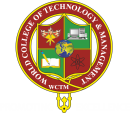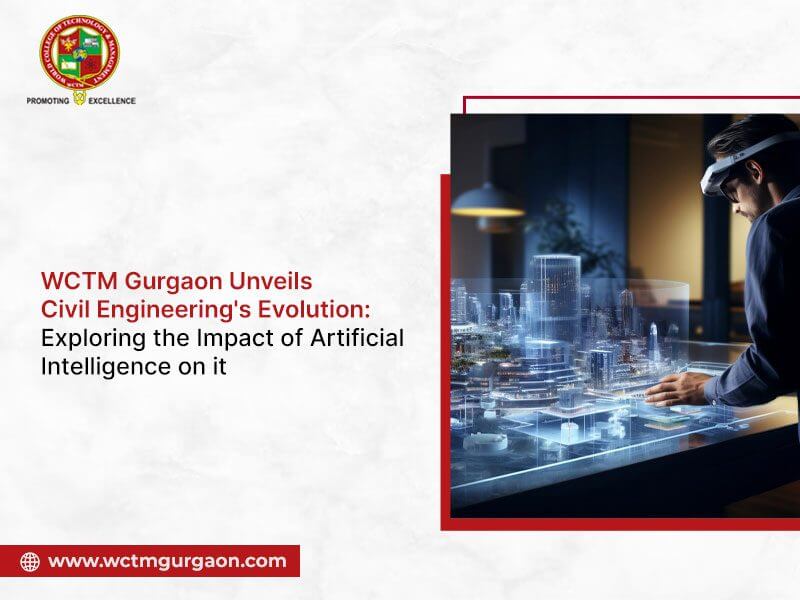Civil engineering, a cornerstone of infrastructure development, is undergoing a revolutionary shift with artificial intelligence (AI). AI integration has led to a 20% increase in project efficiency and a significant reduction in design errors, as reported by the American Society of Civil Engineers. This synergy is not just theoretical. It’s practical with AI-driven systems, reducing construction time by up to 15%. AI is reshaping civil engineering from predictive analytics to automated design. Even the best engineering colleges in Gurugram have noticed this trend and altered their curriculum so that students can keep up with the world.
Advanced AI in Civil Engineering
The integration of superior AI in civil engineering is revolutionising the field, presenting smarter, greater green, and sustainable solutions. This evolution is marked by the adoption of modern-day software programs and the opening of new opportunities in construction and design.
Predictive Analysis Software
Tools like Autodesk’s BIM 360 use AI for predictive insights, reducing dangers and improving venture consequences.
Automated Design Systems
AI-driven software program together with Bentley Systems’ SYNCHRO gives optimised layout solutions, appreciably decreasing design time and errors.
Construction Robotics
Companies like Built Robotics are pioneering AI in self-sufficient construction gadgets, enhancing protection and performance on-site.
Sustainable Resource Management
AI tools help in sustainable clothing choice and waste reduction, which is vital for green creation.
Smart Infrastructure Maintenance
AI applications in tracking and maintaining infrastructure fitness, like IBM’s Maximo, are becoming increasingly important for lengthy-time period sustainability.
The Position of AI in Sustainable Development
Artificial Intelligence (AI) is remodelling sustainable development in this generation. The government is also turning to the best engineering colleges in Delhi NCR, to provide them with students who understand the use of AI while inculcating a sustainable culture.
Resource Efficiency
AI algorithms drastically lessen waste and assist in predicting correct aid demands to make certain more efficient use of assets.
Energy Efficiency
AI contributes to electricity-efficient buildings that are important to reducing environmental impact and selling sustainability.
Waste Control
AI plays a crucial role in decreasing waste and improving recycling techniques throughout construction.
Life Cycle Assessment
AI gear permits environmental assessment all through a building’s lifestyle cycle, leading to sustainable construction practices.
Intelligent Town Planning
AI contributes to sustainable town-making plans that balance environmental, social, and financial values.
Future Prospects and WCTM Gurgaon’s Role
The intersection of AI and civil engineering heralds a future brimming with innovation. One of the best colleges for civil engineering in Gurgaon, WCTM Gurgaon, is key in shaping this destiny.
- Advanced AI Analytics: Future tendencies point closer to state-of-the-art AI for predictive maintenance. WCTM Gurgaon, as one of the best engineering colleges in Gurugram, is gearing up to embed those technologies in its curriculum.
- Autonomous Construction Equipment: AI-driven equipment will transform creation sites. WCTM Gurgaon aims to familiarise its college students with those improvements.
- 3-D Printing in Construction: The upward push of AI-optimized three-D printing is imminent. WCTM Gurgaon plans to offer practical schooling in this innovative approach.
- Smart Cities Development: AI’s role in smart town planning is developing. WCTM Gurgaon envisions its graduates contributing appreciably to this region.
- AI in Environmental Sustainability: With a focus on the sustainable creation of the best college for civil engineering in Gurgaon, WCTM Gurgaon is ready to combine AI solutions that sell environmental responsibility in future initiatives.
- Integrated Structural Health Monitoring: AI’s potential in monitoring structural integrity is vast. WCTM Gurgaon is preparing to incorporate real-time data analysis techniques in its civil engineering program. This will enable future engineers to predict and prevent structural failures, enhancing the safety and longevity of constructions.
- Enhanced Geotechnical Engineering: AI’s application in geotechnical engineering is set to revolutionise foundation designs. WCTM Gurgaon is focusing on integrating AI tools to analyse soil behaviour more accurately. This will aid in developing more efficient and safer foundation solutions, crucial for modern infrastructure projects.
Conclusion
The integration of Artificial Intelligence in civil engineering is not only a fashion; it’s a paradigm shift redefining the complete subject. AI brings precision, efficiency, and revolutionary solutions, reworking how we approach production and layout. In this unexpectedly evolving panorama, WCTM Gurgaon emerges as a pivotal player in AI training. With its forward-questioning curriculum and consciousness of practical AI-pushed engineering solutions, WCTM Gurgaon is not simply preserving pace with the changes; it’s actively shaping the future engineers who will drive this interesting new era of civil engineering.
Related Post:



